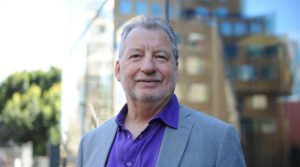Refugees feel welcome in the bush – study finds
 Refugees and new immigrants integrate well in Australia – and especially in regional areas, according to a new study.
Refugees and new immigrants integrate well in Australia – and especially in regional areas, according to a new study.
New research which surveyed newly arrived refugees from Syria, Iraq and Afghanistan – who all had been recently settled in Queensland across Brisbane, Logan and Toowoomba – found that they felt welcomed by their new communities, found it “easy” to get along, and felt a strong sense of belonging to their new homes.
More than 200 refugees were surveyed and the findings included: 81 per cent of those in regional Toowoomba saying they found it ‘very easy’ or ‘easy’ to make friends in Australia; 62 per cent of refugees in Brisbane and Logan said the same – making an average of 68 per cent across Queensland.
The study’s co-author, Professor Jock Collins from the University of Technology Sydney, said this refuted the idea that migrants formed linguistic bubbles and largely communicate in their own language.
“In our experience the people we are talking to are really, really keen to learn English,” Prof Collins said, speaking at the first ever Regional Settlement Conference, held in Toowoomba recently.
He said only 6 per cent of the new arrivals said they spoke no English, 47 per cent said they spoke it ‘not very well’, 38 per cent spoke English ‘well’ and 9 per cent spoke it ‘very well’.
Measures of belonging were generally higher in Toowoomba, the researchers said, because of a proactive and welcoming community, and worse in Logan, which has higher levels of socio-economic disadvantage.
The research found 82 per cent of refugee children said they felt they belonged to the local community – either ‘always’, ‘most of the time’ or ‘often’.
Only 18 per cent said they belonged ‘occasionally’ or not at all. Half of all refugees surveyed said it was ‘very easy’ or ‘easy’ to talk to their new neighbours.
Co-researcher Professor Carol Reid, from Western Sydney University, said successful settlment of refugees required local community support.
“Where there is strong support, you find there are no problems,” Prof Reid said.
“With the whole issue of English language learning, in the 1980s we had more funding around multicultural policy, and people could learn English on the job. The tension between employment and English could be resolved by that.”
The study found the unemployment rate was high among the new arrivals – with only 18 per cent in paid employment – but Prof Collins said that would change with time.
“We know that a lot of the refugees we talk to are putting off looking for a job until their English is better. We will be talking to them next year and expect to see an increase in the employment rate,” Prof Collins said.
“For the engineers and architects and pharmacists, the professions have severe gatekeepers for their profession that they have to hurdle. For a lot of the others, it’s a bit of a Catch-22, they won’t get a job without Australian experience.
“There needs to be a way where these refugees can get work experience, and a recognition of prior learning. A lot of them are very confident, they are excellent at their skills.”
Prof Collins said that the research showed that Australia had potential to take more refugees.
“Most people don’t know that in 2017 Australia took in more than double the number of refugees than it usually takes. The sky didn’t fall in – in fact it worked quite well,” he said.
“Regional and rural Australia has an appetite for more migrants and refugees. It proves to us that the bush is not redneck, it is supportive of diverse communities.
“Overwhelmingly, most respondents also felt the arduous journey from Syria and Iraq had been worth it – 85 per cent of all Queensland respondents believe they’ve found a neighbourhood that’s a good place to bring up children.
Laurie Nowell
AMES Australia Senior Journalist












